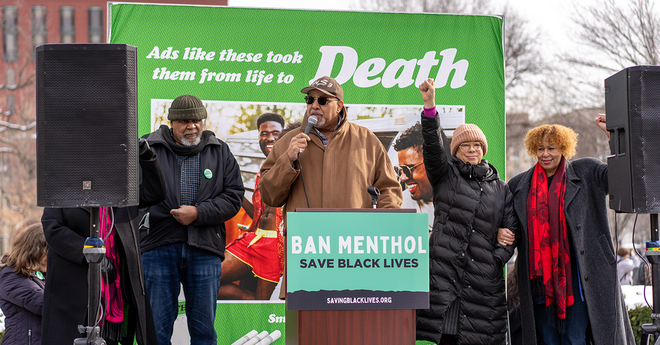What carrying a pack of cigarettes says about young smokers
Young tobacco users who carry a pack of cigarettes or other tobacco products are less likely to see tobacco as a significant danger to themselves or society, according to new findings from Truth Initiative researchers published in Health Education & Behavior.
95.9%
95.9% of proven carriers were carrying cigarette packs
The findings help shed light on the attitudes and behavior of young smokers in ways that should guide efforts to help young smokers quit.
The truth campaign surveyed 3,927 youth and young adults aged 13 – 24 who attended the Van’s Warped Tour, a popular annual music festival, during the summer of 2012. The surveys were conducted on iPads using the Survey on Demand application.
Participants acknowledged whether and how frequently they used tobacco of any kind in the last 30 days in order to identify recent and regular users. Researchers identified 363 proven carriers, smokers who said they were carrying tobacco and took photographs of their tobacco products using the iPad on which they were survey; 182 unproven carriers, smokers who said they were carrying tobacco but did not submit photographs of the products via the iPad; and 1,426 non-carriers, smokers who said they smoked but who said they did not carry tobacco products.
Tobacco users who carry vary significantly from non-carriers in their attitudes toward tobacco use. Carriers are less likely to believe that tobacco use is bad for their health, are less likely to harbor negative attitudes toward tobacco generally, are less likely to think tobacco creates significant problems for society, and are well over 3 times the odds to say they will smoke in the next year.
In addition to helping to explain how the decision to carry a pack of cigarette interacts with attitudes toward tobacco, the findings shed important light on the habits and identities of youth who carry tobacco products.
Cigarettes were by far the most popular product: 95.9 percent of proven carriers had a cigarette pack, and 39.7 percent of carriers had a pack of menthols. Smokers who carry packs of cigarettes smoked 2.8 more days in the previous month than non-carriers and 2.4 more days than unproven carriers
“These findings have important implications for public health officials working to help young smokers quit. The decision to carry a pack of cigarettes could help smokers create a distinct smoker identity that is more firmly pro-tobacco, while smokers who choose not to carry a pack might be more likely to identify as a so-called social smoker,” said Jessica Rath, director of evaluation and research at Truth Initiative.
“Anti-smoking messages might need to be tailored to the specific identities that smokers craft,” she said.
More in traditional tobacco products
Want support quitting? Join EX Program
By clicking JOIN, you agree to the Terms, Text Message Terms and Privacy Policy.
Msg&Data rates may apply; msgs are automated.



